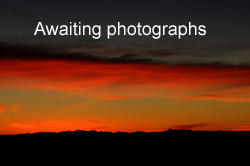Places to stay in Devon |
DevonDevon is a large county in southwestern England. The county is sometimes referred to as Devonshire, although it has never been officially "shired" and that use often indicates a traditional or historical context. Nowadays, "Devonshire" is mostly a demonym. The county shares borders with Cornwall to the west and Dorset and Somerset to the east. Its southern coast abuts the English Channel and its northern coast the Bristol Channel and Celtic Sea. The name "Devon" derives from the ancient Dumnonia, which was home to the independent kingdom of Brythonic Celtic speaking people who inhabited this area of the southwestern peninsula of Britain continuously from through the Roman era until partial absorption into the English-speaking Kingdom of Wessex sometime in the eighth or ninth century, with some emigration to the sister Kingdom of Domnonee in Brittany taking place. Devon is the fourth largest of the English counties by area and has a population of 1,141,600 making it the 11th most populous. The county town is the cathedral city of Exeter. In addition to Devon County Council, the county contains two unitary authorities (independent from Devon County Council's control): the port city of Plymouth and Torbay, a conurbation of seaside resorts. Plymouth is also the largest city in Devon. Much of the county is rural (including national park) land, with a low population density by British standards. It contains Dartmoor 954 km2 (368 sq mi), the largest open space in southern England. It is the only English county to have two separate coastlines – a north and southern coastline. The county is the location of part of England's only natural UNESCO World Heritage Site, the Dorset and East Devon Coast, known as the Jurassic Coast for its geology and geographical features. It is also home to Braunton Burrows UNESCO Biosphere Reserve, a dune complex in the north of the county. Along with Cornwall, Devon is known as the "Cornubian massif". This geology gives rise to the landscapes of Dartmoor and Exmoor, the latter two being national parks. Devon has seaside resorts and historic towns and cities, rural scenery and a mild climate, accounting for the large tourist sector of its economy. Picture-perfect Devon has long been one of the country’s favourite holiday destinations, and with such a smorgasbord of natural wonders, it’s not hard to see what keeps the holidaymakers coming back. Blanketed with patchwork pastures, dotted with rural villages, and bordered by some of the country’s most stunning coastline, it’s a county with something to offer everyone: a place to walk the hills, roam the fields and bike the bridleways before stuffing yourself with some hearty Devonian cooking in a backcountry inn. If it’s the quintessentially kitsch British seaside you’re after, then head to the South Devon Coast for the chintzy seaside resorts of Ilfracombe, Torquay & Paignton. For a bit more class, the ancient Roman city of Exeter has some of the best preserved medieval architecture in the southwest, not to mention one of its most impressive cathedrals. And if you’re really looking to get away from it all, the wild expanse of Dartmoor National Park makes the perfect place to escape the summertime crowds.
|
|||||||
|
|
||||||||
